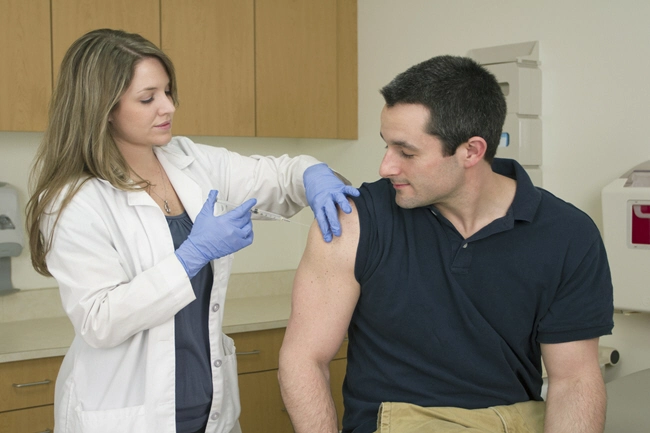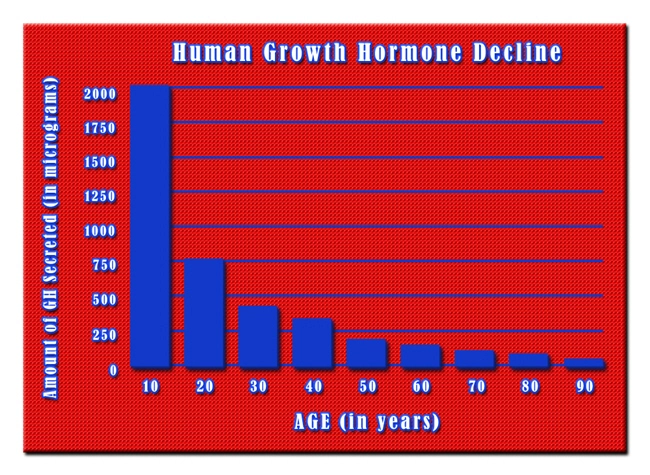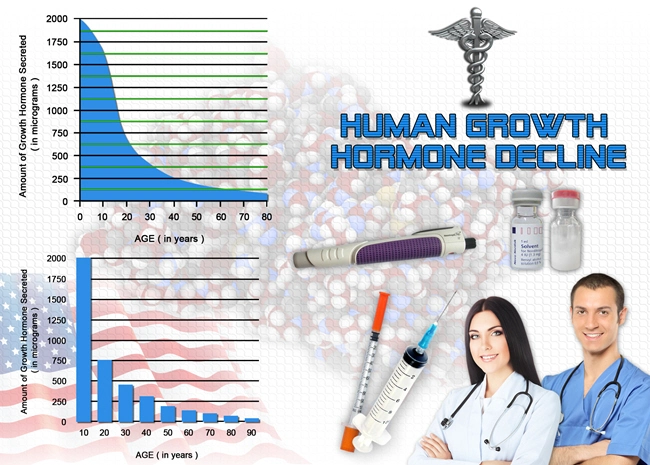
Introduction
Heart disease remains the leading cause of mortality among American men, prompting extensive research into its underlying causes. While lifestyle and environmental factors are well-documented contributors, genetic predispositions play a crucial role in the development of this condition. This article delves into the findings of a recent genome-wide association study (GWAS) that explores the genetic factors influencing heart disease in American men, offering new perspectives on prevention and treatment strategies.
Understanding the Study's Methodology
The GWAS in question analyzed the genetic data of over 10,000 American men, half of whom had been diagnosed with heart disease. By comparing the genetic profiles of these groups, researchers identified specific genetic variants associated with an increased risk of developing heart disease. The study's large sample size and rigorous methodology provide a robust foundation for understanding the genetic underpinnings of this prevalent condition.
Key Genetic Variants Identified
Several genetic variants emerged as significant predictors of heart disease risk. Notably, variants in the 9p21 locus were strongly associated with an increased risk. This locus has been previously linked to coronary artery disease, reinforcing its relevance in the context of heart disease. Additionally, variants in the APOE gene, known for its role in lipid metabolism, were identified as key contributors to heart disease susceptibility.
Implications for Prevention and Treatment
The identification of these genetic variants has significant implications for the prevention and treatment of heart disease in American men. For instance, individuals carrying the high-risk variants at the 9p21 locus may benefit from more aggressive lifestyle interventions, such as dietary modifications and increased physical activity. Similarly, those with APOE variants might require targeted lipid-lowering therapies to mitigate their risk.
Personalized Medicine and Genetic Screening
The findings from this GWAS underscore the potential of personalized medicine in managing heart disease. Genetic screening could become a routine part of cardiovascular risk assessment, enabling healthcare providers to tailor prevention and treatment plans based on an individual's genetic profile. This approach could lead to more effective interventions and improved outcomes for American men at risk of heart disease.
Challenges and Future Directions
Despite the promising insights offered by this study, several challenges remain. The complexity of heart disease, influenced by a myriad of genetic and environmental factors, necessitates further research to fully elucidate the genetic landscape. Future studies should aim to include diverse populations to ensure that findings are applicable across different ethnic groups. Additionally, longitudinal studies could provide valuable data on how genetic variants interact with lifestyle factors over time.
Conclusion
The genome-wide association study on the genetic factors contributing to heart disease in American men represents a significant step forward in understanding this complex condition. By identifying key genetic variants associated with increased risk, the study paves the way for more personalized approaches to prevention and treatment. As research continues to unravel the genetic basis of heart disease, American men can look forward to more effective strategies to safeguard their cardiovascular health.
This article highlights the critical role of genetics in heart disease and emphasizes the importance of integrating genetic insights into clinical practice. As we move towards a future of personalized medicine, the findings from this GWAS offer hope for reducing the burden of heart disease among American men.
Contact Us Today For A Free Consultation
Dear Patient,
Once you have completing the above contact form, for security purposes and confirmation, please confirm your information by calling us.
Please call now: 1-800-380-5339.
Welcoming You To Our Clinic, Professor Tom Henderson.

- Understanding and Treating Erectile Dysfunction: Causes, Diagnosis, and Options for American Men [Last Updated On: February 25th, 2025] [Originally Added On: February 25th, 2025]
- Top Fitness Trends Transforming American Men's Health and Well-being [Last Updated On: March 17th, 2025] [Originally Added On: March 17th, 2025]
- Understanding Male Infertility: Causes, Diagnosis, and Treatment Options for American Men [Last Updated On: March 18th, 2025] [Originally Added On: March 18th, 2025]
- Physical Activity's Role in Cancer Prevention for American Men: Strategies and Benefits [Last Updated On: March 18th, 2025] [Originally Added On: March 18th, 2025]
- Hydration's Vital Role in Enhancing Men's Health and Well-being in America [Last Updated On: March 18th, 2025] [Originally Added On: March 18th, 2025]
- Osteoporosis in Men: Risks, Prevention, and Strategies for Bone Health [Last Updated On: March 18th, 2025] [Originally Added On: March 18th, 2025]
- Essential Supplements for Men's Health: A Comprehensive Guide for American Males [Last Updated On: March 19th, 2025] [Originally Added On: March 19th, 2025]
- Stress and Heart Health: Impacts and Management Strategies for American Men [Last Updated On: March 19th, 2025] [Originally Added On: March 19th, 2025]
- Gout in American Men: Symptoms, Causes, and Management Strategies [Last Updated On: March 21st, 2025] [Originally Added On: March 21st, 2025]
- Breaking the Stigma: Enhancing Mental Health Support for American Men [Last Updated On: March 21st, 2025] [Originally Added On: March 21st, 2025]
- Sleep Apnea in American Men: Symptoms, Risks, and Management Strategies [Last Updated On: March 21st, 2025] [Originally Added On: March 21st, 2025]
- Work-Life Balance: Impact on American Men's Health and Strategies for Improvement [Last Updated On: March 21st, 2025] [Originally Added On: March 21st, 2025]
- Allergies in American Men: Symptoms, Management, and Impact on Quality of Life [Last Updated On: March 22nd, 2025] [Originally Added On: March 22nd, 2025]
- Meditation's Impact on Men's Mental Health: Benefits and Integration Strategies [Last Updated On: March 22nd, 2025] [Originally Added On: March 22nd, 2025]
- Gut Health Essentials for American Men: Microbiome, Diet, and Wellness [Last Updated On: March 22nd, 2025] [Originally Added On: March 22nd, 2025]
- Strength Training: Enhancing Men's Health in the U.S. with Resistance Exercises [Last Updated On: March 22nd, 2025] [Originally Added On: March 22nd, 2025]
- Alcohol's Impact on Liver Health: Risks, Stages, and Prevention for American Males [Last Updated On: March 22nd, 2025] [Originally Added On: March 22nd, 2025]
- High Cholesterol in American Men: Risks, Management, and Prevention Strategies [Last Updated On: March 23rd, 2025] [Originally Added On: March 23rd, 2025]
- Enhancing Men's Mental Health in the Workplace: Challenges and Strategies [Last Updated On: March 23rd, 2025] [Originally Added On: March 23rd, 2025]
- Obesity and Cancer Risks in American Men: Understanding and Mitigation Strategies [Last Updated On: March 23rd, 2025] [Originally Added On: March 23rd, 2025]
- Dietary Fiber: Essential for Men's Health and Disease Prevention [Last Updated On: March 23rd, 2025] [Originally Added On: March 23rd, 2025]
- Kidney Stones in American Men: Prevention, Management, and Health Strategies [Last Updated On: March 24th, 2025] [Originally Added On: March 24th, 2025]
- Effective Smoking Cessation Strategies for American Men's Health and Well-being [Last Updated On: March 24th, 2025] [Originally Added On: March 24th, 2025]
- Mental Health Days: Essential for American Men's Well-being and Productivity [Last Updated On: March 24th, 2025] [Originally Added On: March 24th, 2025]
- Plant-Based Diets: Enhancing Men's Health from Heart to Mind [Last Updated On: March 25th, 2025] [Originally Added On: March 25th, 2025]
- Dental Health's Crucial Role in Men's Overall Well-being and Disease Prevention [Last Updated On: March 25th, 2025] [Originally Added On: March 25th, 2025]
- Stroke Risks and Prevention Strategies for American Men [Last Updated On: March 25th, 2025] [Originally Added On: March 25th, 2025]
- Tai Chi: Enhancing Men's Health in the U.S. - Physical, Mental, Cognitive Benefits [Last Updated On: March 25th, 2025] [Originally Added On: March 25th, 2025]
- Diet's Impact on Prostate Health: Foods to Embrace and Avoid [Last Updated On: March 25th, 2025] [Originally Added On: March 25th, 2025]
- Annual Physicals: Vital for Men's Health, Early Detection, and Personalized Care [Last Updated On: March 25th, 2025] [Originally Added On: March 25th, 2025]
- Managing Anxiety in American Men: Tools and Techniques for Mental Health [Last Updated On: March 25th, 2025] [Originally Added On: March 25th, 2025]
- Depression in American Men: Holistic Treatment Approaches and Breaking Stigma [Last Updated On: March 25th, 2025] [Originally Added On: March 25th, 2025]
- Asthma in American Men: Prevalence, Management, and Lifestyle Impact [Last Updated On: March 26th, 2025] [Originally Added On: March 26th, 2025]
- Seasonal Affective Disorder in American Men: Symptoms, Impact, and Management Strategies [Last Updated On: March 26th, 2025] [Originally Added On: March 26th, 2025]
- Gut-Brain Axis: Stress Impact on Digestive Health in American Males [Last Updated On: March 26th, 2025] [Originally Added On: March 26th, 2025]
- Exercise Benefits for American Men Managing Diabetes: Enhancing Health and Well-being [Last Updated On: March 26th, 2025] [Originally Added On: March 26th, 2025]
- Proactive Health Strategies for American Men: Screenings, Lifestyle, and Mental Well-being [Last Updated On: March 26th, 2025] [Originally Added On: March 26th, 2025]
- Caffeine's Impact on American Men: Health, Performance, and Consumption Guidelines [Last Updated On: March 26th, 2025] [Originally Added On: March 26th, 2025]
- Diet and Heart Disease Prevention in American Males: Key Components and Recommendations [Last Updated On: March 26th, 2025] [Originally Added On: March 26th, 2025]
- Pilates: Enhancing Men's Health and Fitness in the U.S. [Last Updated On: March 26th, 2025] [Originally Added On: March 26th, 2025]
- Cycling Benefits for American Men: Health, Fitness, and Well-being [Last Updated On: March 27th, 2025] [Originally Added On: March 27th, 2025]
- Insomnia's Impact on Men's Health: Causes, Effects, and Management Strategies [Last Updated On: March 27th, 2025] [Originally Added On: March 27th, 2025]
- Swimming: Enhancing Men's Health in America Through Fitness and Wellness [Last Updated On: March 27th, 2025] [Originally Added On: March 27th, 2025]
- Hemorrhoids in American Men: Causes, Symptoms, and Management Strategies [Last Updated On: March 27th, 2025] [Originally Added On: March 27th, 2025]
- Sleep's Crucial Role in Weight Management for American Men [Last Updated On: March 27th, 2025] [Originally Added On: March 27th, 2025]
- Eye Exams: Essential for Men's Vision and Overall Health Monitoring [Last Updated On: March 28th, 2025] [Originally Added On: March 28th, 2025]
- Arthritis in Men: Prevention, Management, and Enhancing Quality of Life [Last Updated On: March 28th, 2025] [Originally Added On: March 28th, 2025]
- Promoting Men's Mental Health: The Urgent Need for Regular Screening and Support [Last Updated On: March 28th, 2025] [Originally Added On: March 28th, 2025]
- Varicose Veins in American Men: Causes, Symptoms, and Treatment Options [Last Updated On: March 28th, 2025] [Originally Added On: March 28th, 2025]
- Social Connections: Vital for American Men's Mental Health and Well-being [Last Updated On: March 29th, 2025] [Originally Added On: March 29th, 2025]
- Hiking's Comprehensive Health Benefits for American Men: Physical, Mental, and Social [Last Updated On: March 31st, 2025] [Originally Added On: March 31st, 2025]
- Rowing: Enhancing Health and Fitness for American Men [Last Updated On: April 1st, 2025] [Originally Added On: April 1st, 2025]
- Pollution's Multifaceted Impact on American Men's Health: Risks and Mitigation Strategies [Last Updated On: April 1st, 2025] [Originally Added On: April 1st, 2025]
- Antioxidants: Key to Health for American Men - Heart, Cancer, Aging, Eye Benefits [Last Updated On: April 1st, 2025] [Originally Added On: April 1st, 2025]
- Breaking Stigma: The Vital Role of Mental Health Education for American Men [Last Updated On: April 2nd, 2025] [Originally Added On: April 2nd, 2025]
- Understanding and Managing Migraines in American Men: Symptoms, Triggers, and Strategies [Last Updated On: April 4th, 2025] [Originally Added On: April 4th, 2025]
- Skin Cancer in American Men: Risks, Prevention, and Early Detection Strategies [Last Updated On: April 5th, 2025] [Originally Added On: April 5th, 2025]
- Alcohol and Mental Health in American Males: A Bidirectional Impact and Solutions [Last Updated On: April 6th, 2025] [Originally Added On: April 6th, 2025]
- Community Impact on American Men's Health and Wellbeing: Support, Prevention, and Engagement [Last Updated On: April 6th, 2025] [Originally Added On: April 6th, 2025]
- Preventing and Managing Back Pain in American Men: Causes, Strategies, and Lifestyle Tips [Last Updated On: April 8th, 2025] [Originally Added On: April 8th, 2025]
- Martial Arts: Enhancing Men's Health and Wellness in the U.S. [Last Updated On: April 9th, 2025] [Originally Added On: April 9th, 2025]
- Technology Reshaping Men's Health: Telemedicine, Wearables, and Digital Apps in the U.S. [Last Updated On: April 11th, 2025] [Originally Added On: April 11th, 2025]
- Managing Panic Attacks: Strategies and Support for American Men [Last Updated On: April 11th, 2025] [Originally Added On: April 11th, 2025]
- Running: Enhancing Men's Health from Heart to Mind in America [Last Updated On: April 11th, 2025] [Originally Added On: April 11th, 2025]
- Men's Hearing Health: Risks, Prevention, and Technological Solutions [Last Updated On: April 12th, 2025] [Originally Added On: April 12th, 2025]
- Essential Vitamins for Men's Health: Enhancing Well-being and Preventing Disease [Last Updated On: April 12th, 2025] [Originally Added On: April 12th, 2025]
- Obesity and Diabetes in American Men: Risks, Impacts, and Management Strategies [Last Updated On: April 12th, 2025] [Originally Added On: April 12th, 2025]
- Soccer's Impact on Men's Health: Cardiovascular, Muscle, and Mental Benefits [Last Updated On: April 15th, 2025] [Originally Added On: April 15th, 2025]
- Managing IBS in American Men: Symptoms, Triggers, and Effective Strategies [Last Updated On: April 15th, 2025] [Originally Added On: April 15th, 2025]
- Lung Cancer in American Men: Risks, Symptoms, Prevention, and Treatment Strategies [Last Updated On: April 15th, 2025] [Originally Added On: April 15th, 2025]
- Diet and Mental Health: Key Insights for American Men's Well-being [Last Updated On: April 16th, 2025] [Originally Added On: April 16th, 2025]
- Obesity and Heart Disease in American Men: Risks, Mechanisms, and Prevention Strategies [Last Updated On: April 17th, 2025] [Originally Added On: April 17th, 2025]
- Basketball's Health Benefits for American Men: Physical, Mental, and Social Wellness [Last Updated On: April 17th, 2025] [Originally Added On: April 17th, 2025]
- Transforming Men's Health: Tailored Mental Health Awareness Campaigns for American Men [Last Updated On: April 18th, 2025] [Originally Added On: April 18th, 2025]
- Mental Health First Aid: A Vital Tool for American Men's Well-being [Last Updated On: April 18th, 2025] [Originally Added On: April 18th, 2025]
- Family Support: Enhancing Health and Well-being of American Men [Last Updated On: April 18th, 2025] [Originally Added On: April 18th, 2025]
- CrossFit: Enhancing Men's Health Through Comprehensive Fitness Regimen [Last Updated On: April 19th, 2025] [Originally Added On: April 19th, 2025]
- Joint Pain in Men: Causes, Prevention, and Management Strategies for American Males [Last Updated On: April 20th, 2025] [Originally Added On: April 20th, 2025]
- Socioeconomic Factors Shaping Health Outcomes for American Men: A Comprehensive Analysis [Last Updated On: April 21st, 2025] [Originally Added On: April 21st, 2025]
- Prostate Cancer Screening Enhances Survival: Importance of Early Detection in American Men [Last Updated On: April 22nd, 2025] [Originally Added On: April 22nd, 2025]








